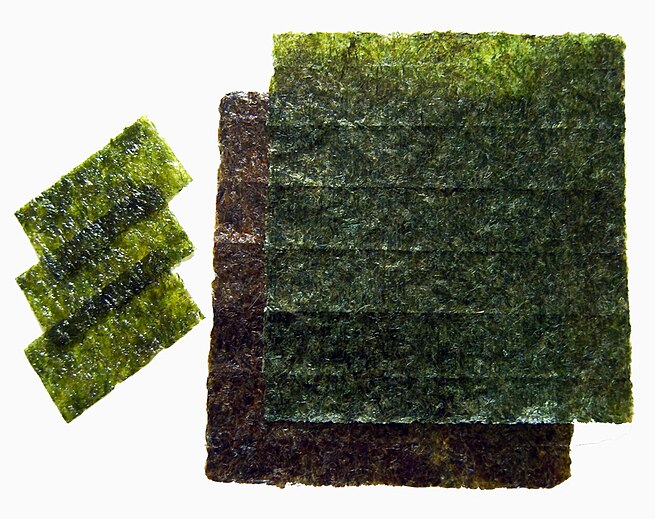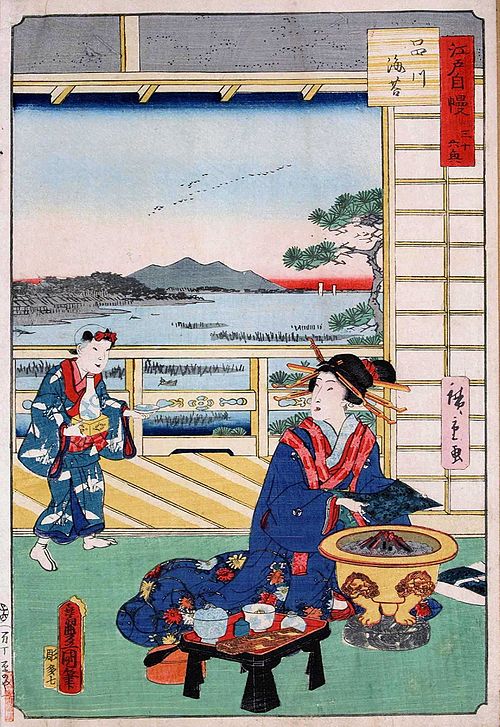Lavernoun
A red alga/seaweed, Porphyra umbilicalis (syn. Porphyra laciniata), eaten as a vegetable.
Lavernoun
Other seaweeds similar in appearance or use, especially:
Lavernoun
Porphyra vulgaris
Lavernoun
One who laves: a washer.
Lavernoun
Where one laves, a washroom, particularly a lavatorium, the washing area in a monastery.
Lavernoun
That which laves, particularly a washbasin.
Lavernoun
A vessel for washing; a large basin.
Lavernoun
A large brazen vessel placed in the court of the Jewish tabernacle where the officiating priests washed their hands and feet.
Lavernoun
That which washes or cleanses.
Lavernoun
One who laves; a washer.
Lavernoun
The fronds of certain marine algæ used as food, and for making a sauce called laver sauce. Green laver is the Ulva latissima; purple laver, Porphyra laciniata and Porphyra vulgaris. It is prepared by stewing, either alone or with other vegetables, and with various condiments; - called also sloke, or sloakan.
Lavernoun
Australian tennis player who in 1962 was the second man to win the Australian and French and English and United States singles titles in the same year; in 1969 he repeated this feat (born in 1938)
Lavernoun
(Old Testament) large basin used by a priest in an ancient Jewish temple to perform ritual ablutions
Lavernoun
edible red seaweeds
Lavernoun
seaweed with edible translucent crinkly green fronds
Norinoun
A type of seaweed, a red alga, laver (genus Pyropia, including species Pyropia yezoensis and Pyropia tenera).
Norinoun
The seaweed, chopped and formed into sheets, used in the preparation of sushi.
Norinoun
A type of dried seaweed, pressed into sheets and used as a seasoning or as a wrapper for sushi.
Nori
Nori (海苔) is a dried edible seaweed used in Japanese cuisine, made from species of the red algae genus Pyropia including P. yezoensis and P. tenera. It has a strong and distinctive flavor, and is often used to wrap rolls of sushi or onigiri (rice balls).






